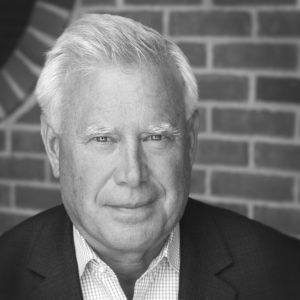We sat down with two Root executives this month – Founder and CEO Jim Haudan and Consultant (and millennial) Kara Davidson – to discuss personal purpose. Here’s what they had to say.
What’s your personal purpose?
Jim Haudan: Helping people to discover the hero within to create exceptional results.
Kara Davidson: To create environments that bring out the best in people.
Is Root a place where personal purpose is embraced?
JH: When we started Root, we had a saying, “We don’t do business, we do life.” Life is simply too short to separate business and personal goals. I believe it’s absolutely vital for people to have the ability to integrate their personal purpose with their organization’s purpose. It’s really, really important.
KD: I think a personal purpose can be a very meaningful way to make your profession more than a job. It’s about connecting what you do with an idea or passion that is personally inspiring, motivating, and meaningful. Root does a really good job of letting employees be individuals and figure out how to apply our unique purposes. I have an interest in cause-related work and I’ve been encouraged to figure out how this aligns with the work we’re doing so I can bring more of my purpose to work with me.
Can you have a job that doesn’t mesh with your personal purpose?
JH: Yes. You can definitely have a job that doesn’t reflect your personal purpose, but these are basic, simple transactions – show up, do the minimal work needed to get by and get paid. But, if you can apply your purpose to your work, well, that changes everything. When you can live out your purpose, your cause, your beliefs at work – that’s when your best capabilities are called to the forefront. You have the ability to let your passion out and a place to invest your discretionary effort.
KD: I think you can absolutely get by and probably even enjoy your job even if it doesn’t align with your personal purpose. But, are you going to perform your best? Be motivated? Keep reaching and challenging yourself if you’re not engaged in a more meaningful way? That’s where I see the issue. However, I also believe some people find purpose not necessarily in their organization’s purpose, but in the activities that they do. For example, some people find enjoyment and personal satisfaction in establishing great relationships and if their employer gives them the platform to do that, then they can be happy and fulfilled and be excellent contributors.
Are millennials more passionate about personal purpose than previous generations?
JH: Millennials are a very enlightened generation and they want to do something for more than money. The journey is just as important as the destination and so purpose is at the very top of their goals. Leaders need to realize that while millennials might take a lower salary for a job that supports their purpose, they’re also going to be the first to walk away from an organization that doesn’t support their purpose.
KD: I can’t speak for the entire generation, but from my experience and taking into consideration the beliefs of my peers, prior classmates, colleagues, etc., millennials are actively looking for jobs where they can be a part of something meaningful and where their purpose can be explored and realized. It’s not just about landing a job and clocking in and clocking out for a paycheck.
Do you think people are ever scared to define their personal purpose?
JH: I think fear is one of the dominant forces in the workplace. Unfortunately, many organizations struggle with creating environments that foster engagement, trust, and safety, and people just don’t feel safe to say what they really think. They fear being vulnerable. So purpose has to be nurtured and nudged out. People have to realize that their leaders honestly want to know what they believe in, and that we want to connect with them. I think the best organizations are seeing how important connecting with their people is on a personal level – it’s exploding, but it’s not commonplace. As leaders, we have lots of work to do. But the benefit of tapping into our people’s personal passions has amazing benefits – it’s how we can motivate, engage, and connect with them to do their best work.
KD: The word that comes to mind is vulnerable. Going through the process of thinking about what’s important and what you will commit to is a personal, vulnerable thing to do. You have to pause and look inward. To slow down, to really evaluate what you want. It’s easy to make excuses to avoid this type of reflection, especially because it leaves you feeling vulnerable.
Do you think you benefit more if you know your personal purpose?
JH: Living out your purpose is more important than you can imagine. In the book The Top Five Regrets of The Dying, written by a woman who spent years working in palliative care, I learned the most common regret people have at the end of their lives is that they didn’t have the courage to live a life true to themselves. When people realized their lives were almost over, it became easy to see it and they often felt unfulfilled because they had made choices based on what others wanted – or to please others – instead doing things based on their own beliefs. This validates the importance of identifying and living out your personal purpose. We need to find the courage to do what we are really called to do – to embrace and live and breathe our purpose. It’s such an important piece to living without regret.
KD: When you know your purpose, things become a lot clearer. When you know and can articulate what you really care about, making decisions and choosing one path over another becomes easier because you can identify which option will help you accomplish your goals and is aligned with your purpose.






